Rwandan women’s activist to challenge Kagame in August polls
Syria: Support for nonviolent fighters key to ending the war
James Lawson Institute
This is a legacy page for the James Lawson Institute (JLI), which ICNC organized in 2013 and 2014.
ICNC organized and ran the James Lawson Institute in 2013 and 2014 as an eight-day program for North American activists and organizers dedicated to sharing knowledge of movement organizing and civil resistance. You can learn more about its process of development here. Following tremendous success with ICNC’s incubation, the James Lawson Institute launched as an independent entity in 2017 offering intensive study of civil resistance to activists in the North American context. Information about the James Lawson Institute and its programs can be found here.
Below is the announcement of the 2014 JLI, organized by ICNC.
The James Lawson Institute:
An Eight-Day Experience in Strategic Evaluation of Nonviolent Civil Resistance
August 16-23, 2014 | Nashville, Tennessee
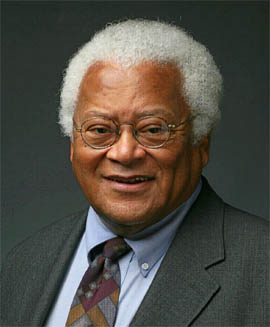 In the 1960s, the Reverend James Lawson organized and led one of the most effective campaigns of nonviolent civil resistance in the 20th century: the Nashville lunch counter sit-ins for the US Civil Rights Movement. In the years that followed he was involved in strategic planning of numerous other major campaigns and actions and was called “the mind of the movement” and “the leading theorist and strategist of nonviolence in the world” by Dr. Martin Luther King, Jr.
In the 1960s, the Reverend James Lawson organized and led one of the most effective campaigns of nonviolent civil resistance in the 20th century: the Nashville lunch counter sit-ins for the US Civil Rights Movement. In the years that followed he was involved in strategic planning of numerous other major campaigns and actions and was called “the mind of the movement” and “the leading theorist and strategist of nonviolence in the world” by Dr. Martin Luther King, Jr.
The US Civil Rights movement, the US Labor movement in the 1930s, the women’s suffrage movement, the anti-nuclear movement, and other move ments in North America and abroad in the decades since did not just engage in activism. They organized people, mobilized them by the millions, and galvanized participation from a broad cross section of society. Collectively, these movements provide a model for how nonviolent change can be organized to win rights, justice and change in very adverse conditions.
ments in North America and abroad in the decades since did not just engage in activism. They organized people, mobilized them by the millions, and galvanized participation from a broad cross section of society. Collectively, these movements provide a model for how nonviolent change can be organized to win rights, justice and change in very adverse conditions.
The James Lawson Institute (JLI) looks at these past movements, and numerous contemporary ones around the world, from a strategic perspective, and engages participants in depth about a wide variety of aspects of organizing and activism in North America. It is a structured seminar to discuss what kinds of strategies, tactics and practices are effective for people organizing movements and waging civil resistance campaigns.
TOPICS COVERED:
Topics to be discussed include:
- The Current State of North American Organizing and Activism
- The Core Dynamics of Nonviolent Civil Resistance
- Movement Formation, Sustainability, and Coalition Building
- Strategy, Tactics, and Planning
- Movement Language and Media
- Managing Repression, Radical Flanks, and Maintaining Nonviolent Discipline
The content is a mixture of theory and practice and is based on the experiences of numerous activists and organizers around the world as well as leading scholarship in the field of social movement and civil resistance. The daily schedule usually includes two presentations and two exercises, as well as an evening program. We will learn from case studies, theoretical frameworks, participant exercises, planning tools, academic research, and each other.
Sessions will be facilitated by James Lawson and the advisors and staff of the International Center on Nonviolent Conflict (ICNC).
APPLICATIONS:
Who Should Apply: North American organizers and activists who are working to organize within the United States or Canada.
The educational environment of the Institute will be rigorous, and we encourage participants to apply who want to share, learn, and work hard for the full eight days. Also, at least half of the learning during the week will draw from participants’ experiences and insights so a good base of field work and/or study in grassroots organizing, movement building, campaign organizing, nonviolent civil resistance, media work, or related areas will be very helpful.
The original application deadline of April 13, 2014 has now been extended to April 20, 2014. No applications will be accepted after April 20, 2014.
You can stay up to date with all the news on the James Lawson Institute (JLI) 2014 on our Facebook page and Twitter feed. You can view the JLI 2014 flyer here. If you have any questions, or would like to request a paper application, please send an email to jli@nonviolent-conflict.org .
When: August 16-23, 2014
Where: Scarritt Bennett Center, Nashville,Tennessee
COST AND SCHOLARSHIPS:
Registration fees for participants are as follows:
$500 – Individuals employed by media, commercial or government organizations
$350 – Individuals with large nonprofit organizations and foundations
$200 – Individuals with local nonprofit and educational organizations
$100 – Organizers, activists and individuals not institutionally affiliated
The JLI registration fee is the only charge requested. Accommodation, all meals, and learning materials for the entire course are paid by the International Center on Nonviolent Conflict (ICNC). Accommodation is in the dormitories at the Scarritt Bennett Center and meals are arranged through the Scarritt Bennett Center.
In addition to the JLI registration fee, participants or their sponsoring organizations are expected to cover their own travel expenses to and from Nashville, Tennessee. However, if an applicant or sponsoring organization cannot afford to pay for travel and/or registration costs, need-based scholarships are available and can be applied for in your JLI application.
Learn more about Rev. James Lawson and nonviolent civil resistance:
“‘A Totally Moral Man'”: The Life of Nonviolent Organizer Rev. James Lawson” by Peter Dreier, Truthout.org, August 15, 2012
ICNC Special Report Series
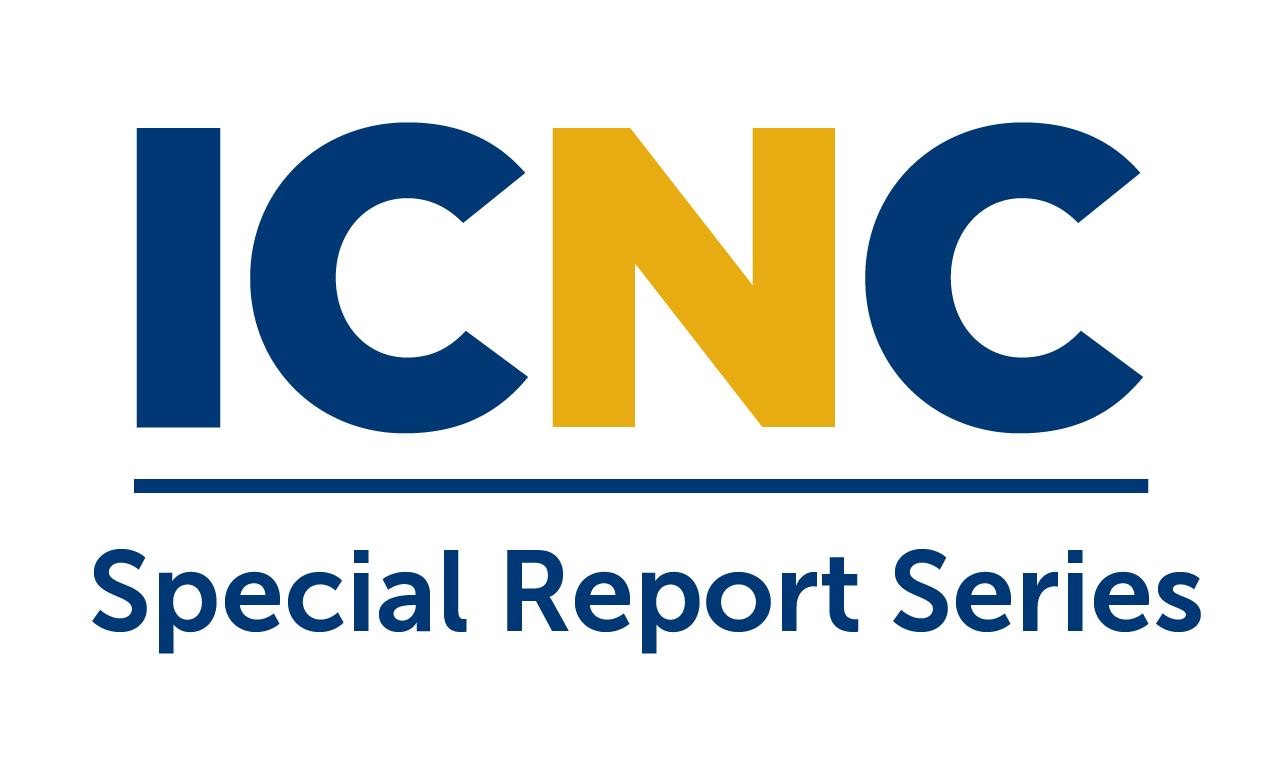 Launched in 2017, ICNC’s Special Report Series aims to bridge the gap between academic, policy and other practitioner communities. ICNC Special Reports draw on cutting-edge research to cover topics pertinent to the ongoing policy discussions and practitioners’ debates around issues relevant to civil resistance movements, grassroots campaigns and nonviolent struggles taking place around the world.
Launched in 2017, ICNC’s Special Report Series aims to bridge the gap between academic, policy and other practitioner communities. ICNC Special Reports draw on cutting-edge research to cover topics pertinent to the ongoing policy discussions and practitioners’ debates around issues relevant to civil resistance movements, grassroots campaigns and nonviolent struggles taking place around the world.
Published Reports
Powering to Peace: Integrated Civil Resistance and Peacebuilding Strategies
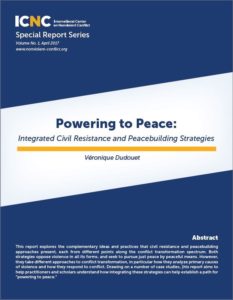 By: Véronique Dudouet
By: Véronique Dudouet
Date of publication: April 2017 (44 pages)
Series Editor: Maciej Bartkowski, Senior Director for Education and Research
Volume Editor: Amber French, Manager of Editorial Initiatives
This report explores the complementary ideas and practices that civil resistance and peacebuilding approaches present, each from different points along the conflict transformation spectrum. Both strategies oppose violence in all its forms, and seek to pursue just peace by peaceful means. However, they take different approaches to conflict transformation, both in their analyses of the primary causes of violence and how they respond to conflict. The report then describes how civil resistance and peacebuilding can work in tandem throughout the four stages of transformation of asymmetric conflicts. Concrete examples are provided to illustrate the respective functions of constructive conflict (through civil resistance) and conflict mitigation (through peacebuilding) in transitions from latent to overt conflict, from resistance to dialogue and negotiation, and from conflict settlement to sustainable peace.
Download free PDF
Buy the book
Forthcoming Special Reports
ICNC is excited to announce a forthcoming special report by Erica Chenoweth and Evan Perkoski entitled “Nonviolent Resistance & the Prevention of Mass Atrocities in Popular Uprisings.” The report is expected to be released in the ICNC Special Report Series in late fall 2017.
Abstract
Since the Arab Spring, states, civilians, and many nongovernmental organizations have watched as contentious events play out across the globe. Many wondered how these events would unfold, which would succeed, and just as significantly, whether those contesting power would come to be victimized by the very governments they were protesting against. In this report we seek to understand why some popular uprisings experience mass killings and others do not. In particular, we focus in on the characteristics of violent and nonviolent uprisings to better understand the types of contentious events that are most likely to elicit government crackdowns. Analyzing new data on state violence and popular uprisings from 1955 to 2013, we find that mass killings are associated with particular country and regime characteristic. Preexisting subgroup discrimination and certain types of authoritarian regimes, for instance, are important predictors of governmental violence. Yet, characteristics of popular uprisings are significant as well. Not every uprising is equally threatening to regime elites, and some – like violent movements with foreign support – are much more likely to elicit mass killings than others. In turn, nonviolent resistance, though oftentimes constituting an even greater challenge to oppressive regimes than armed struggle, tends to also decrease the likelihood of mass atrocities. These findings therefore have important implications for policymakers seeking to prevent mass atrocities, and for activists seeking to stay safe in the course of a popular uprising.
Nonviolent Action and the “New Story”: Completing the Circle for an Unstoppable Movement
This webinar occurred on Thursday, June 22, 2017 from 12-1 p.m. EST.
Watch the webinar:
Webinar summary:
We are in the throes of a “paradigm shift” from an “old story” of materialism and separateness, in which competition and violence are inevitable, to a “new story” drawing on both new scientific understandings and ancient wisdom traditions that value nonviolence. In this new story, we can see again that we are deeply connected to one another and the natural world, and that the kind of nonviolent and just society Martin Luther King called the “Beloved Community” is not just desirable, but possible. This growing view, promoted by thought leaders like Thomas Berry and Joanna Macy, encourages a “Great Turning” in how we see and engage the world, and it does so at a level deeper than just rational argument. It aims, as Gandhi said, to “move the heart also.”
At the same time, nonviolent action and civil resistance are spreading rapidly around the world and new strategies with innovative tactics, newly empowered communities, new institutions, and new victories for justice, freedom, and rights are being won in ways that the old story would say is impossible.
In this webinar, we will discuss why the times are propitious for a vital change in the cultural stories we tell ourselves and will explore the role of nonviolent action in both completing the story and getting it accepted.
This connection is too often neglected. Currently, the social theorists working on the new story know little about nonviolent social change movements. Many nonviolent movement organizers and theorists do not pay much attention to either the new story or the underlying cultural assumptions that support or hinder movements for social change. What could be accomplished if both efforts realized their overlap and connection to each other? We are ready for a breakthrough!
Presenter:
 Professor Michael Nagler is the founder and president of The Metta Center for Nonviolence. He also serves as the co-host of Nonviolence Radio, which airs every other Friday on KWMR FM radio, which you can subscribe to via iTunes or Stitcher. In addition, Nagler is editor of Daily Metta, a daily reflection on Gandhi’s words which you can find at this link. He is also the author of The Search for a Nonviolent Future and The Nonviolence Handbook, among other works.
Professor Michael Nagler is the founder and president of The Metta Center for Nonviolence. He also serves as the co-host of Nonviolence Radio, which airs every other Friday on KWMR FM radio, which you can subscribe to via iTunes or Stitcher. In addition, Nagler is editor of Daily Metta, a daily reflection on Gandhi’s words which you can find at this link. He is also the author of The Search for a Nonviolent Future and The Nonviolence Handbook, among other works.
Relevant Readings:
- David Loye, Ed. The Great Adventure: Toward a Fully Human Theory of Evolution. SUNY, 2004.
- Frans de Waal. The Age of Empathy: Nature’s Lessons for a Kinder Society. Random House, 2010
- David Korten. The Great Turning: From Empire to Earth Community. 2007
- Erica Chenoweth and Maria Stephan. Why Civil Resistance Works: The Strategic Logic of Nonviolent Conflict. Columbia University, 2011.
- Michael Nagler. The Search for a Nonviolent Future. New World Library, 2001.
Hungary: Thousands in Budapest protest legislation targeting Soros-founded university
Protests sweeping South America show rising anti-government anger
Turkey arrests dozens over referendum protests
France: Chinese-French millennials protest police shooting
What Uganda’s Poor and “Under-Educated” Activists Can Teach People Resisting Autocrats Across the World
This “Voices from the Field” webinar occurred on Wednesday, May 24 from 12-1 p.m. EST.
Watch the webinar below:
Webinar summary:
This webinar will discuss ongoing struggles in Uganda, including successes in organizing and training peasant farmers, as well as the role of activists and leaders from the informal transportation sector. These campaigns are led and waged by the most underprivileged groups in society, with counterparts across the global south. These budding and sustained movements are evidence that marginalized community-led movements add longevity and effectiveness to broader struggles for change.
Presenters:
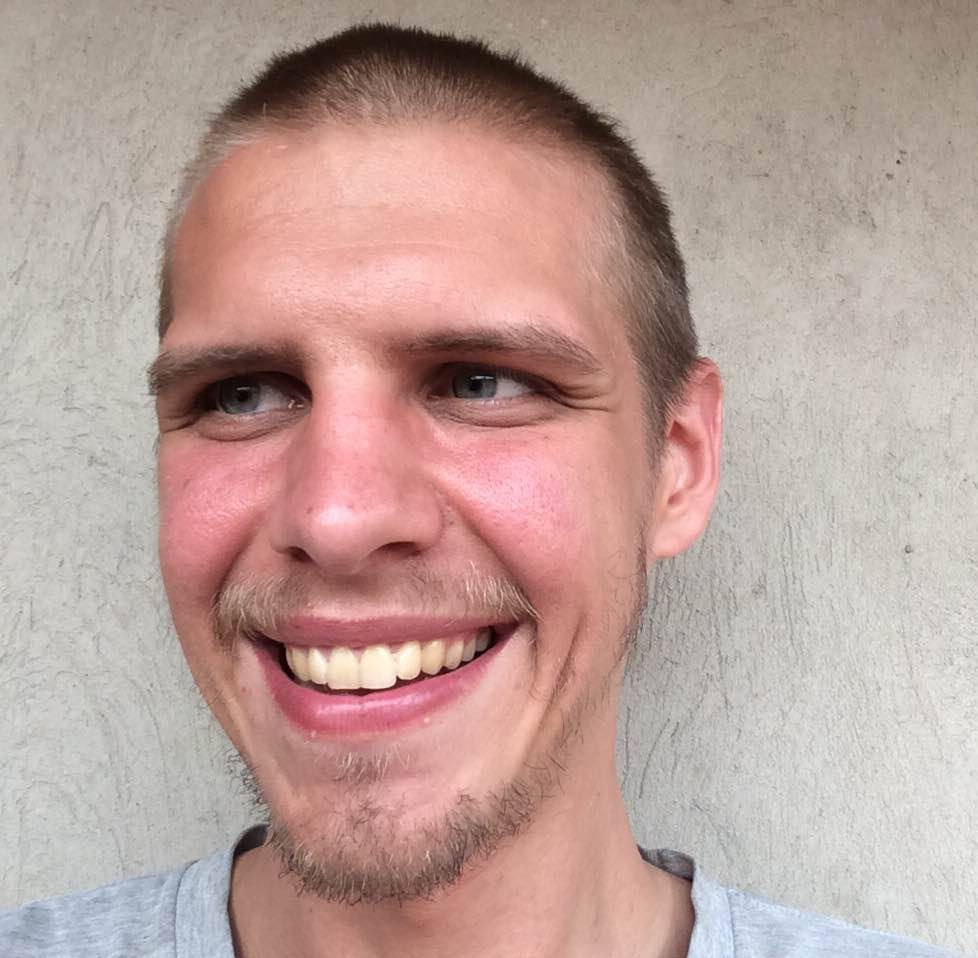 Phil Wilmot is husband to Suzan Abong Wilmot. Together, they co-founded Solidarity Uganda with a group of Ugandan activists. The organization aims to train social change and environmental advocacy groups throughout Uganda in the skills, methods, and concepts of nonviolence. Phil and Suzan reside in Lira, Uganda with their daughter Aceng Nadia. They have been working with a number of campaigns and movements around the country, including informal transport workers, farmers, urban activists, and others to teach nonviolent resistance, strategies and tactics and to build people’s power to improve people’s lives in local communities in Uganda. He has trained hundreds of people in nonviolent strategy and movement building, especially in East Africa. He writes for Waging Nonviolence and Mobilisation Lab and recently published a book on his 2014 detainment in a Ugandan jail called, A Wolf Dressed in Sheepskin: A White Guy’s Dilemma in a Ugandan Jail Cell. He is also an advisor for Beautiful Rising and one of the LIN 2016 Fellows, along with Suzan Abong Wilmot and Daniel Tulibagenyi.
Phil Wilmot is husband to Suzan Abong Wilmot. Together, they co-founded Solidarity Uganda with a group of Ugandan activists. The organization aims to train social change and environmental advocacy groups throughout Uganda in the skills, methods, and concepts of nonviolence. Phil and Suzan reside in Lira, Uganda with their daughter Aceng Nadia. They have been working with a number of campaigns and movements around the country, including informal transport workers, farmers, urban activists, and others to teach nonviolent resistance, strategies and tactics and to build people’s power to improve people’s lives in local communities in Uganda. He has trained hundreds of people in nonviolent strategy and movement building, especially in East Africa. He writes for Waging Nonviolence and Mobilisation Lab and recently published a book on his 2014 detainment in a Ugandan jail called, A Wolf Dressed in Sheepskin: A White Guy’s Dilemma in a Ugandan Jail Cell. He is also an advisor for Beautiful Rising and one of the LIN 2016 Fellows, along with Suzan Abong Wilmot and Daniel Tulibagenyi.
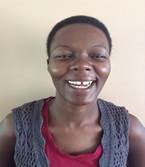 Scovia Arinaitwe is a director and trainer of Solidarity Uganda. An organizer with the Women’s Movement and The Jobless Brotherhood, Scovia works with people of all social classes in Kampala. She ran an activist-centered rapid response system for political prisoners which also functioned to build bridges between movements.
Scovia Arinaitwe is a director and trainer of Solidarity Uganda. An organizer with the Women’s Movement and The Jobless Brotherhood, Scovia works with people of all social classes in Kampala. She ran an activist-centered rapid response system for political prisoners which also functioned to build bridges between movements.
Nonviolent Direct Action: A Course Taught by ICNC High School Curriculum Fellow 2016
Elizabeth “Betsy” Cepparulo, an ICNC High School Curriculum Fellow, developed, offered and moderated a course on the introduction to civil resistance in 2016 as part of the ICNC High School Curriculum Fellowship.
The information featured below was submitted as part of the fellowship requirement that, among others, included creating a detailed course proposal, developing curriculum content, designing evaluation tools, selecting participants and extensive moderation throughout the course.
Learn more by clicking on the topic links:
Go back to the main ICNC High School Curriculum Fellowship page.
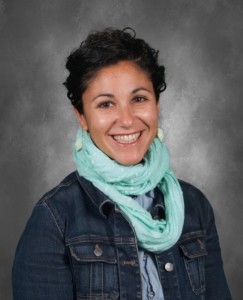 Elizabeth “Betsy” Cepparulo is a History teacher at Wilmington Friends School, in Wilmington, Delaware. She specializes in a course called Global Peace and Justice, which teaches world history through topics such as women’s rights, civil disobedience, social justice, and peace in a time of conflict. Prior to teaching, Betsy was an attorney in Pennsylvania for four years, focusing mainly on family law and criminal defense. She has her BA from Skidmore College, her JD from Temple University, and her Masters in Education Policy and Leadership from Stanford University.
Elizabeth “Betsy” Cepparulo is a History teacher at Wilmington Friends School, in Wilmington, Delaware. She specializes in a course called Global Peace and Justice, which teaches world history through topics such as women’s rights, civil disobedience, social justice, and peace in a time of conflict. Prior to teaching, Betsy was an attorney in Pennsylvania for four years, focusing mainly on family law and criminal defense. She has her BA from Skidmore College, her JD from Temple University, and her Masters in Education Policy and Leadership from Stanford University.
Course Title: Nonviolent Direct Action
High School: Wilmington Friends School, Delaware
Abstract: In this course, students will explore civil resistance movements from both practical and personal standpoints. Practically, students will learn concrete steps to engaging in a nonviolent direct action (NVDA) campaign. This will differentiate civil resistance and NVDA from passivity, which is sometimes confused with peaceful resistance. Personally, students will study Gandhi and Indian Independence, James Lawson and MLK Jr with the Civil Rights movement, and finally Colombian civil resistance in the face of violence. Students will write their own NVDA plans, contemplate a “peace force,” and explore the pros and cons of fighting violence and oppression with active peace. In the end, students will be able to articulate concrete steps and nuanced perspectives in ending conflict with civil resistance.
Learning Gains Survey Results:
The Learning Gains Survey aims to measure knowledge gains among course participants. Participants take the Pre-Seminar Survey at the beginning of the course and take an identical survey (Post-Seminar) at the end of the course. Included below is the graphed responses to the questions from the Pre-Seminar and Post-Seminar Surveys. In general, the surveys illustrate a positive trend in the knowledge gains achieved by participants as a result of the course.
Learning Gains Survey Answer Key:
The following questions were answered on a scale of 1-5, where:
1= None 2 = A little bit 3= adequate 4= Good 5 = Excellent
Learning Gains Survey Questions:
- Rate your level of familiarity with nonviolent direct action as a specific strategy for achieving change
- Rate your level of familiarity with the definition of Nonviolent direct action
- Rate your level of familiarity with Gandhi’s methodology for achieving nonviolent civil resistance
- Rate your level of familiarity with India’s struggle for independence
- Rate your level of familiarity with James Lawson’s techniques for nonviolent civil resistance
- Rate your level of familiarity with Martin Luther King, Jr’s techniques for nonviolent civil resistance, specifically his four-step plan
- Rate your level of familiarity with nonviolent direct action during the civil rights movement in the American south
- Rate your level of familiarity with using civil resistance against violent groups
- Rate your level of familiarity with the “comunidades de paz,” in Colombia and their methods of civil resistance
- Rate your level of familiarity with “peace forces” as an alternative for a military army
- Rate your level of interest in nonviolent civil resistance as an alternative to war
- Rate your likelihood of using nonviolent tactics in the future to create change that you believe in
Learning Gains Survey Results Explained:
As you can see in the graph above, the majority of students reported having low levels of familiarity with various civil resistance struggles and tactics when completing the Pre-Seminar LGS at the start of the course. However, by the time students completed the Post-Seminar LGS, at the end of the course, they reported much higher levels of familiarity with each struggle listed and general civil resistance knowledge. The overall civil resistance knowledge level of the students more than doubled as a result of their experience in this course.
Go back to the main ICNC High School Curriculum Fellowship page.

